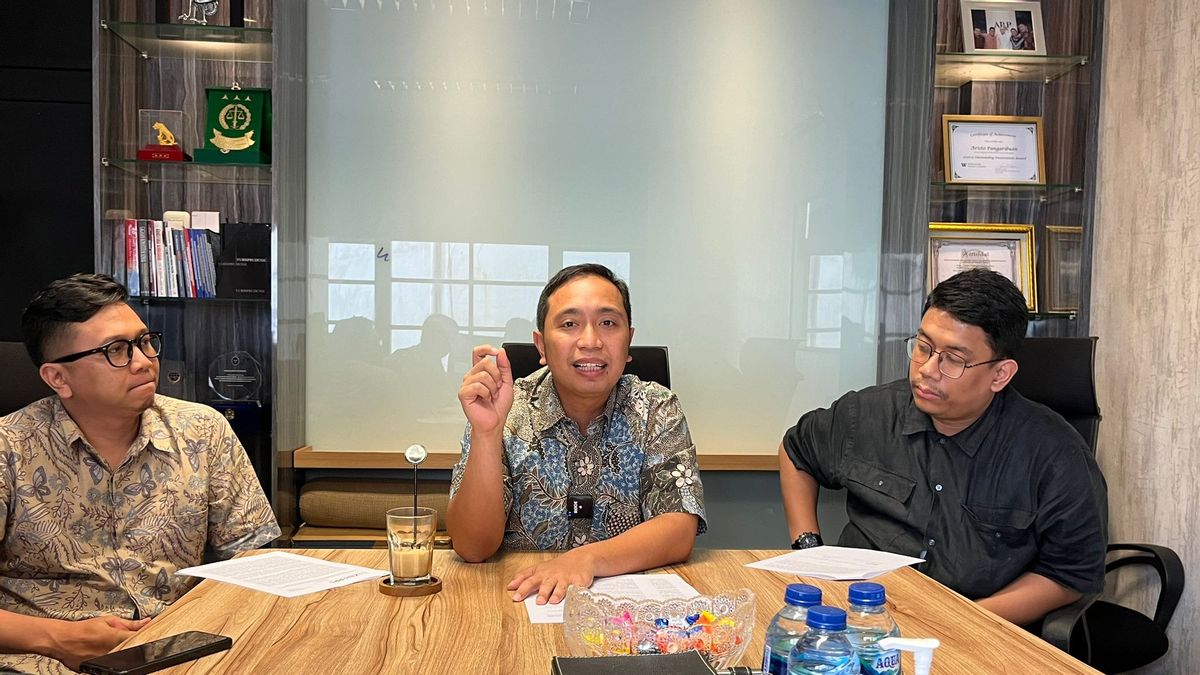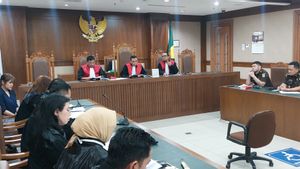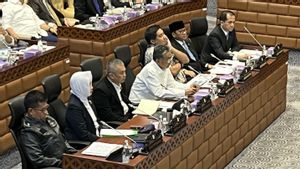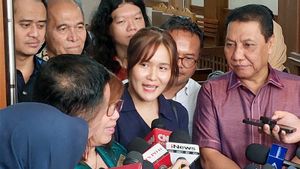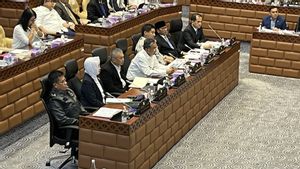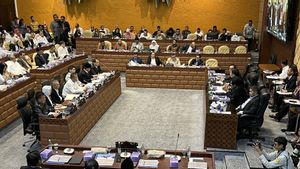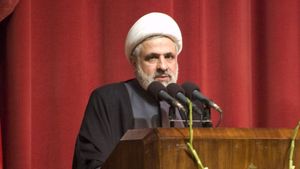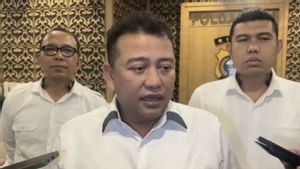JAKARTA Support for the review decision (PK) convicted of corruption in the mining business license (IUP) Mardani H Maming at the Supreme Court (MA) has reappeared. After UII, Unpad, and UGM, now the pressure for exemption has come from the Faculty of Law, University of Indonesia (FH UI).
This was realized during the visit of a group of the Legal Aid Consultation and Dispute Settlement Choices Consultation Institute (LKBH-PPS) FH UI visited the Supreme Court yesterday. FH UI submitted a document containing a legal analysis of the Supreme Court's decision review effort on behalf of Mardani Maming.
LKBH-PPS representative, Aristo Pangaribuan SH, LLM, PhD said the legal decision against Mardani on charges of bribery did not meet adequate evidence standards.
"After analyzing a number of documents and decisions related to this case, we argue that the decisions against the convicts in the previous forums are very appropriate to be canceled, because of the weak standards of evidence in punishing the convicts. In fact, in the Criminal Procedure Code, a criminal court judge must be active in exploring the truth," Aristo said in a statement written Wednesday, October 30.
The team, which consisted of several young UI academics, considered that the decision against Mardani did not meet adequate evidence standards in accordance with Article 12 letter b jo. Article 18 of Law no. 31 of 1999 concerning the Eradication of Criminal Acts of Corruption.
"We argue that the basis of the argument in punishing Mardani H. Maming does not meet the evidentiary requirements, especially with the increase in the body's sentence from 10 years at the first court level to 12 years at the appeal level, as well as changes regarding replacement money at the cassation level," he said.
SEE ALSO:
According to Aristo, this document submitted shows a "real mistake" and a " judge's mistake" that could form the basis for the Supreme Court to consider a review.
Aristo said, the LKBH PPS UI revealed two main arguments in the document. First, there are weaknesses in the element of receiving a gift' based on the testimony of a hearsay witness, or indirect testimony, which they think has been banned by the Constitutional Court since 2011.
The main witness, Henry Soetio, has died. Witnesses such as Junaidi, Suroso, and Christian only conveyed the information they heard from other parties, not experience or direct observations. In addition, witnesses from the Regency Government only conveyed statements that were situational in nature and were not directly related to the core of the case, "added Aristo.
The second weakness in this case, he continued, was that there was no evidence of a meeting of minds or the similarity of will between Mardani as the recipient of bribes and the bribe giver.
"The existence of a commercial court decision against PT Prolindo is also an indication that the transaction between the company suspected of being affiliated with Mardani is a legitimate business transaction," said Aristo.
Finally, in his presentation, LKBH PPS UI emphasized the importance of the active role of judges in exploring the truth in criminal trials. Therefore, he said, he hoped that this analysis document could be a reference for the Supreme Court in evaluating this case.
"We hope that this review effort can be accepted and produce a decision that considers the weaknesses of the evidence that we identify. We compiled this document as a form of contribution to the Supreme Court so that it can review the decision more carefully," said Aristo.
The English, Chinese, Japanese, Arabic, and French versions are automatically generated by the AI. So there may still be inaccuracies in translating, please always see Indonesian as our main language. (system supported by DigitalSiber.id)
